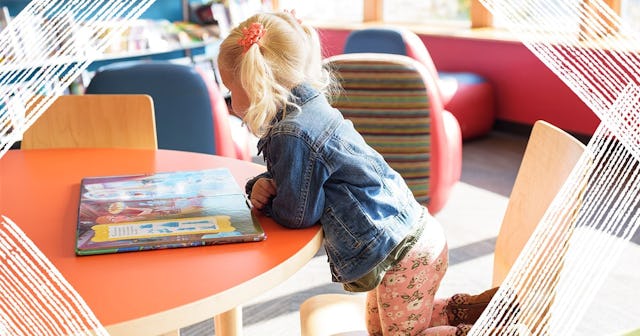I Miss The Library

Before our schools closed in March, way back when the pandemic was new and we thought a two week break would solve all of our problems, I went to the library. At the time I suspected, but didn’t want to believe, that school would be moved to distance learning for the rest of the year. Two weeks of homeschooling would be totally doable, especially with resources from the library I told myself.
While that was true, two weeks turned into four more which turned into what feels like the end of time. I may regret my naivety, but I don’t regret the bags of books and videos I was able to snag from one of my favorite places before everything closed. When the rallies and marches for Black Lives Matter started and then the whiplash of news from Trump and SCOTUS regarding LGBTQ rights, I felt the same knee-jerk reaction I felt in March: I need to get to the library.
The library is still closed to the public, but ours recently reopened for curbside pick-up and drop-off. I will utilize that generous service, but it’s not the same. Books and the space that holds them are such a comfort and necessary resource, especially now.
The library is the town’s equivalent to a workplace water cooler. It’s where we mingle, learn, and process information and find solidarity as a community. We need that more than ever right now. I am trying to make connections to my understanding of history and racism while continuing to educate my kids about race. I can call and reserve books and movies that will cover these topics, but it’s not the same as going into a space that offers time and opportunity to have meaningful conversations about current events.
Pixabay
The ability to brainstorm and talk openly with other people is vital to my growth and to the growth of the community I live in. Conversations where folks are able to be heard because others are actively listening will help us understand each other. And talking to others in person puts accountability on us when it comes to examining our biases and evaluating our role in the problems we know need to be solved.
Librarians also facilitate these conversations with patrons because they are some of the coolest and smartest people I know. I am continually grateful for the thoughtfulness they provide, and the suggestions they are willing to take when there is a gap in the library’s representation of a topic.
When I was a stay-at-home-parent, I was at the library at least once a week, but usually twice. As a queer parent, I wanted to see more books that represented families like mine. Yes, I wanted them for my children, but I need the town I live in to be educated too. I don’t want my kids or my family to be tokenized and bear the weight of emotional labor when it comes to queer representation and family diversity. I needed the library to have more and easier-to-access books that all children and families could see, so that families like mine are normalized in the context of our heteronormative society. The library saw their blind spot and happily ordered all of the books I suggested.
As the Black Lives Matter movement gains the momentum it needs and deserves, I know our library and librarians stand in solidarity. The small book cases where seasonal books are rotated frequently would be filled with books about race and racism. The children’s section would have books on display that feature age appropriate history lessons and characters of color, not simply because they are of color but because Black people are people and their stories and voices need to be heard too. Books about Pride and LGBTQIA+ history would be on display too. And I know our library has been purchasing more to meet the community’s need of this diversity.
Pixabay
We have a lot of work to do to improve homophobia, transphobia, and systemic racism in this country. It’s not enough to just raise kind kids. Teaching our kids that we are all the same takes away from the fact that we are not treated the same based on our differences. We need to acknowledge that our kids are not and should not be color blind. We also need to acknowledge that one of our kids could be queer.
For some parents, this is difficult. The fear of messing up sometimes stops folks from having the important conversations with friends, family, and our kids. The library and librarians help make these topics more tangible and easier to discuss. No matter what our level of comfort when it comes to talking about race, religion, socio-economic, or LGBTQIA+ issues, the library has books, movies, shows, and humans who can give suggestions about titles and share their expertise and lived experience on these topics. I miss this space. My desire to surround myself and my kids with stories and information to help us understand ourselves and the people we live next to us is strong. I am about to place a call to reserve books to pick up so that I can bring some of that into our home.
Not all problems can be fixed inside of a library, but the books on the shelves show us history and examples of progress. Books improve our empathy, social and emotional intelligence, and inspire us to make changes. Books are the allies we need to be better allies to the folks who are fighting to write a new and improved history.
This article was originally published on